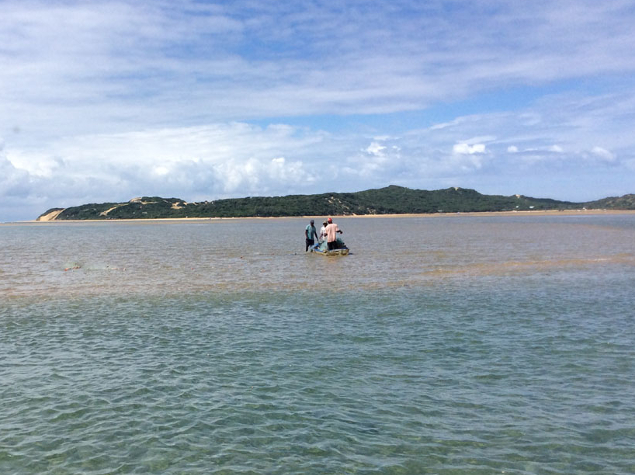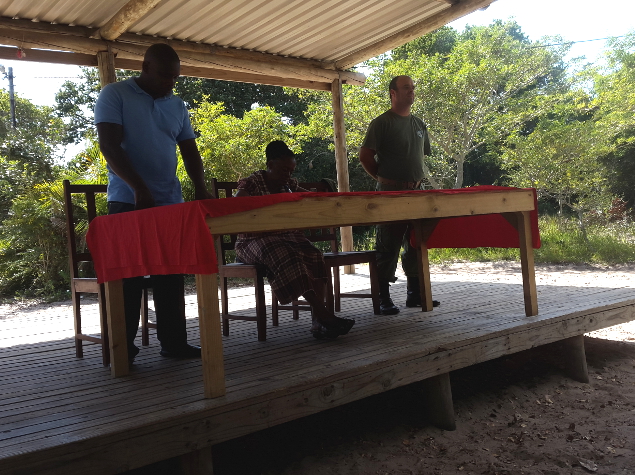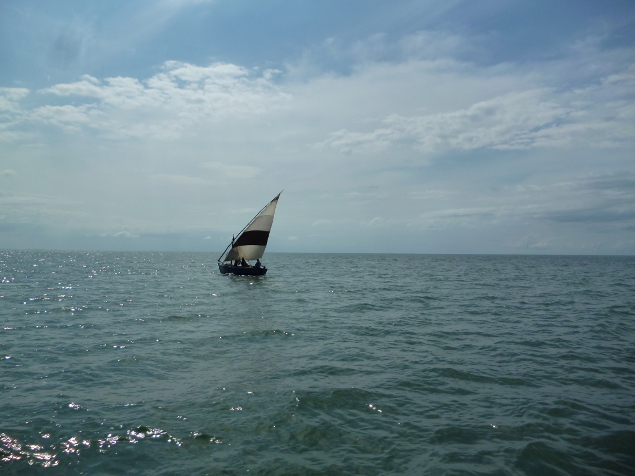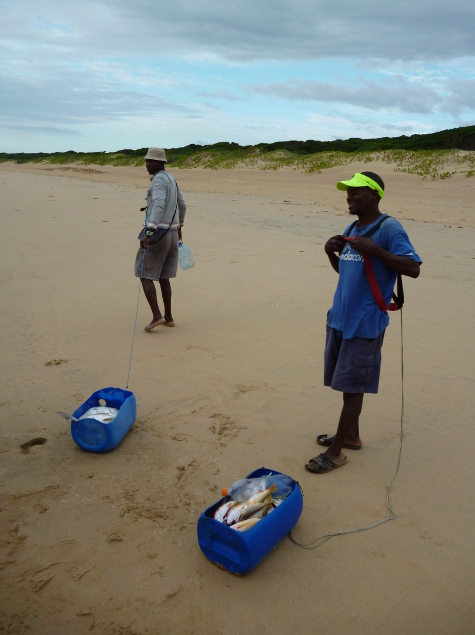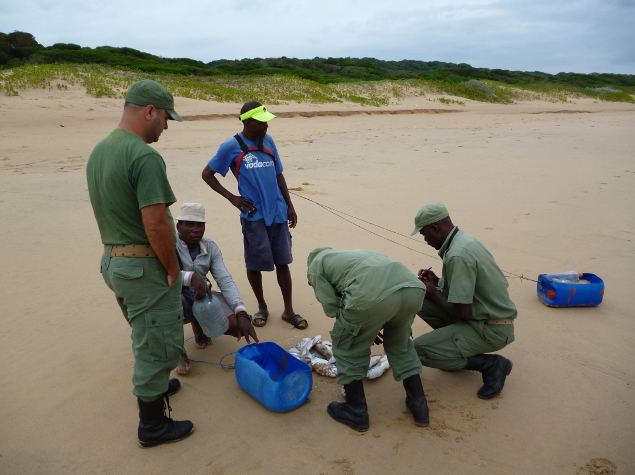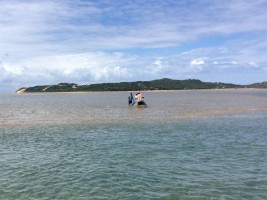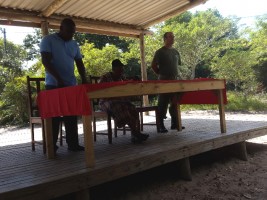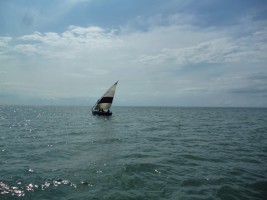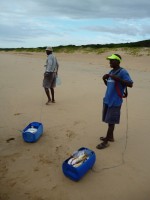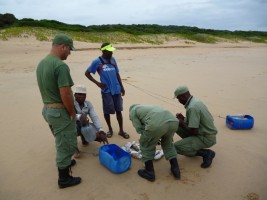Sustainable fishing and alternative livelihood for communities living adjacent to the Ponta do Ouro Marine Reserve
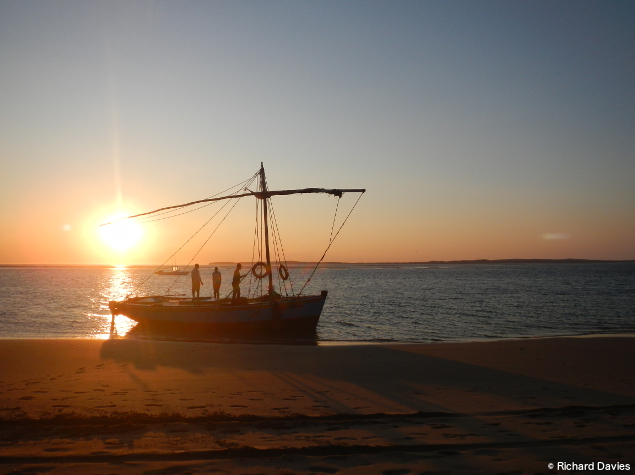
The Ponta do Ouro Partial Marine Reserve is a priority conservation area in southern Mozambique. This zone is protected to ensure the preservation of representative ecosystems and species as well as for the benefit of the state, private companies and communities, subjects to permissible levels of resources extraction.
Few alternatives exist for local communities adjacent to the reserve who still rely on fish for food and income. The fishing and marine harvesting methods practiced exhaust and often destroy the natural resources and species these communities rely on. More, uncontrolled fishing upsets the balance in critical marine ecosystems.
Maputo bay and Inhaca Island have been identified as crucial areas for intervention within the reserve. Furthermore, as new conservation laws and regulation are set up to protect the country’s natural resources, not enough is done to assist local communities to adapt to new emerging restrictions and challenges.
The main objective of this project, proposed by Peace Parks Foundation (PPF), is to conserve the biodiversity and natural marine ecosystems within this zone, whilst at the same time promoting economic growth and development, based on controlled and sustainable use of the area’s natural resources by local communities.
The project will be implemented through three different stages:
Research:
Much has changed in and around Maputo Bay area over the past decade and there is a great need to establish current and detailed data about the ecosystem, fishing and marine harvesting as well as characteristics (demographic and socio-economic) of the communities in this area. Various activities are planned such as identifying and assessing the status of critical habitats and ecosystems (of among other coral reefs, sea grass beds, beaches, mangroves, rock platforms and intertidal sand flats), researching and monitoring human activities and impacts and determining the conservation regulations’ impact on these communities. It is also planned to monitor the commercial and recreational shores as well as boat fishing within the reserve.
Development and implementation of sustainable fishing practices and management strategies:
Based on the results obtained from first stage, decisions will be made on the degree of intervention for each species, ecosystem and habitats. Then, various potential interventions will be considered as determining the legal rights of communities to resources use, establishing designated areas for fishing and tourism experience within the protected area, enforcing seasonal fishing patterns and providing the use of appropriate net size, investigating aspects such as fish sanctuaries as natural sources from which fish resources can benefit and investigating the possibility of aquaculture and mariculture projects in zone where alternative livelihood options are limited.
Alternative livelihood strategies:
Coupled with the development and implementation of sustainable fishing practices, the Community Development Facility (CDF) will identify and develop alternative livelihoods for communities impacting or affected by this project. The CDF is a joint initiative between the Government of Mozambique, COmON Foundation and Peace Parks Foundation intended to serve as financing mechanism to unlock community enterprise and socioeconomic development opportunities. It will target community-based agriculture, conservation and tourism related opportunities that align with the objectives of the reserve.
This part of the project will include: identifying communities who will most benefit from alternative livelihoods strategies, investigating options for locally appropriate and suitable projects that can be implemented at household and community level, discussing options with the communities. The final objective is to build a strong Community Public Private Partnership based on the natural resources adjacent to the reserve and assisting communities with unlocking the economic potential of these alternative livelihoods through support programs and linkage. Community members could be engaged in enterprises development providing fresh produce, crafts, marine products or village based tourism opportunities.
This part of the programs also aims to ensure that the value of conservation and marine ecosystems is well understood and appreciated, and therefore supported, by all relevant stakeholders of the reserve, for the purpose of conservation and ecotourism. It will also ensure equitable benefits to affected communities.
Final report summary:
- Research findings have been produced on critical habitats and ecosystems, artisanal human activities, the impact of conservation regulations and the extent of recreational and commercial fishing and marine harvesting in the Maputo bay. A monthly catch monitoring is done by CTV.
- 2 Conselho Comunitario de Pesca (CCPs – formally recognized community fisheries councils), with 162 members in Santa Maria and 244 in Mabuluco, have now structures to operate. 244 fishers were newly registered. Awareness-raising actions were implemented notably in schools in Machangulo.
- A detailed strategy and implementation plan with viable alternative livelihood options and budgets was developed through 2 studies.
- 12 freezers have been distributed through a local micro-loan agency to improve quality and quantity of fish sales. Tilapia culture at two pilot sites, involving 12 fishermen, have been set up. 33 youths received a vocational training with provision of business start-up kits, 126 in English courses and 34 students in IT. Savings and credit groups have been developed in 4 villages and are already functional in 2.
Check out information on this project’s phase 2 here.

